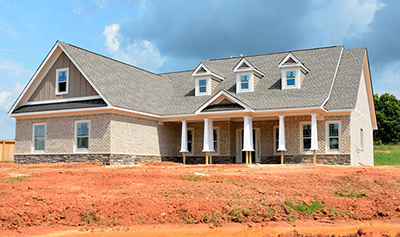
Builder Confidence Steadies as Material, Labor Challenges Persist

The National Association of Home Builders reported builder confidence inched up in September on lower lumber prices and strong housing demand, even as the housing sector continues to grapple with building material supply chain issues and labor challenges.
Ending a three-month decline, builder sentiment in the market for newly built single-family homes edged up one point to 76 in September, according to the NAHB/Wells Fargo Housing Market Index released Monday, well off of its record high 90 last November.
The HMI index gauging current sales conditions rose one point to 82; the component measuring traffic of prospective buyers posted a two-point gain to 61; and the gauge charting sales expectations in the next six months held steady at 81.
Regionally, the Northeast fell two points to 72, the South dropped two points to 80 and the West registered a two-point decline to 83. The Midwest remained unchanged at 68.
“The single-family building market has moved off the unsustainably hot pace of construction of last fall and has reached a still hot but more stable level of activity, as reflected in the September HMI,” said NAHB Chief Economist Robert Dietz. “While building material challenges persist, the rate of cost growth has eased for some products, but the job openings rate in construction is trending higher.”
“The September data show stability as some building material cost challenges ease, particularly for softwood lumber,” said NAHB Chairman Chuck Fowke, a custom home builder from Tampa, Fla. “However, delivery times remain extended and the chronic construction labor shortage is expected to persist as the overall labor market recovers.”
NAHB expects housing affordability will be a key demand-side challenge in the coming quarters, given the rapid rate of growth for home prices and construction costs over the last year.
“Regionally, we continue to see growth in the South and the West, particularly the Mountain West,” said Dietz. “Exurban markets have expanded the most over the last year, although inner suburbs are now experiencing an acceleration, with townhouse construction having had the best quarter in 14 years this spring.”
